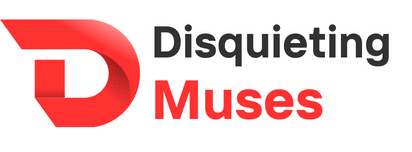How Can UK Craft Breweries Expand Their Reach with Digital Marketing?

The craft beer market is booming globally, and UK craft breweries are no exception. The use of digital marketing tools such as social media, content marketing, and brand strategy can elevate a brewery’s business and expand its reach to a wider audience. However, it’s essential to understand how to leverage these digital tools effectively. This article provides insights into how UK craft breweries can use digital marketing to expand their market reach, elevate their brand, and attract more customers.
Leveraging Social Media for Craft Breweries
The use of social media platforms such as Instagram, Facebook, and Twitter is now more critical than ever. These platforms offer an opportunity for breweries to engage with their audience, share their brand story, and market their products.
Also to read : What Are the Best Ways to Integrate CSR into Your Business Model for Brand Reputation?
Instagram is a visual platform that allows breweries to showcase their craft beer visually. Breweries can share photos and videos of their brewing process, new beer releases, and events. This can create a deep connection with their audience, driving customer engagement and loyalty.
But it’s not just about posting pictures of beer. Breweries need to create engaging content that resonates with their audience. This could be anything from brewing tutorials to behind-the-scenes footage, interviews with the brewmaster, or even posts featuring customers enjoying their beer.
Also read : What Are the Steps to Create a Data-Driven Customer Retention Strategy for Online Retail?
Facebook and Twitter, on the other hand, offer a platform for breweries to share news, events, and special promotions. They also provide an opportunity to engage in real-time conversations with customers, address their queries, and receive feedback.
Building a Strong Craft Beer Brand Online
Online presence plays a crucial role in building a strong craft beer brand. A well-designed website can be a powerful tool for breweries to showcase their brand story, their range of beers, brewing process, and more. It can also provide an opportunity for customers to buy beer online, find stockists, or even book a brewery tour.
Breweries can also leverage email marketing to build a relationship with their customers. Regular newsletters can keep customers updated about new beer releases, events, and promotions. This will help in building brand loyalty and repeat business.
Moreover, breweries can use Search Engine Optimization (SEO) techniques such as using relevant keywords, optimizing images, using meta descriptions, and more, to improve their website’s visibility on search engines. This can attract more visitors to the website and potentially convert them into customers.
Crafting a Content Strategy for Breweries
Crafting a robust content strategy is crucial to any digital marketing plan. For breweries, this could mean creating blog posts about the brewing process, beer pairing recipes, brewer interviews, or even news about the craft beer industry.
Breweries can share this content through their social media channels, website, and email newsletter. This not only provides value to the audience but also establishes the brewery as an authority in the craft beer market.
Moreover, engaging and shareable content can increase the brewery’s visibility online. It can also drive traffic to the brewery’s website and encourage social media engagement, thereby reaching a wider audience.
Utilizing Digital Advertising for Craft Breweries
Digital advertising is another powerful tool that breweries can use to expand their reach. Platforms like Google Ads and social media advertising can help breweries reach a wider audience beyond their existing customer base.
Breweries can target ads based on demographics, interests, location, and even behaviors. This allows breweries to reach potential customers who are likely to be interested in their beer.
Furthermore, breweries can use remarketing strategies to target individuals who have visited their website or engaged with their social media content. This can increase brand recall and encourage these individuals to make a purchase.
Measuring Success and Adjusting Strategy
Finally, it’s important for breweries to continuously monitor and adjust their digital marketing strategy. By using analytics tools, breweries can track the performance of their digital marketing efforts. This includes monitoring website traffic, social media engagement, email open rates, ad performance, and more.
These insights can help breweries understand what’s working and what’s not in their digital marketing strategy. They can then adjust their approach accordingly to maximize their marketing efforts. For instance, if a certain type of social media post is generating a lot of engagement, the brewery might want to create more of such content.
Overall, digital marketing presents a wealth of opportunities for UK craft breweries to expand their reach and grow their business. By leveraging social media, building a strong online brand, crafting a content strategy, utilizing digital advertising, and continuously adjusting their strategy based on performance, breweries can thrive in the digital age. Remember, in the world of craft beer, authentic connection with your audience is key.
Embracing User-Generated Content for Greater Exposure
User-generated content (UGC) has become a crucial aspect of digital marketing strategies. Craft breweries can utilize this by encouraging their customers to share their experiences with their products on social media. It’s an organic way to boost brand awareness while connecting with the target audience.
Encouraging customers to share their craft beer moments on Instagram or Facebook with a specific hashtag can generate a buzz around the brand. This not only builds a community of loyal customers but also puts the brand in front of potential new customers. For instance, customers could be encouraged to share photos of their favorite craft beer with exciting captions, or short videos of their brewery visits.
UGC can also be a valuable source of feedback, allowing breweries to understand consumer preferences and adapt their products accordingly. Breweries can also repost user-generated content on their official page, giving recognition to their customers. This creates a more authentic connection with their audience, making them feel more engaged and valued.
Understanding the power of user-generated content and integrating it into the digital marketing strategy can significantly extend the reach of UK craft breweries.
Pioneering in Influencer Marketing for Craft Breweries
In the realm of digital marketing, the role of influencers in shaping consumer behavior cannot be overlooked. The beer industry, too, can leverage influencer marketing to expand its reach and attract a new audience.
Craft breweries can partner with influencers who share a genuine passion for craft beer. This could involve inviting influencers to brewery tours, new beer tasting events, or having them create engaging content about their craft beers.
Influencers can create a buzz around the brand by sharing their personal experiences with the beer, behind-the-scenes glimpses of the brewing process, or showcasing their beer pairing recipes. This can pique the interest of their followers, introducing them to the brewery and potentially converting them into customers.
Moreover, influencer collaborations can bring a fresh perspective to the brand, helping breweries to stay relevant and in tune with evolving consumer trends.
Conclusion
The rise in digital marketing presents a fantastic opportunity for UK craft breweries to extend their reach, connect with their audience, and grow their business. By adopting a comprehensive digital marketing strategy that involves leveraging social media, crafting engaging content, utilizing user-generated content, and collaborating with influencers, breweries can make their mark in the competitive beer market.
Embracing these strategies can help breweries create an authentic connection with their audience, build brand loyalty, and stay at the forefront of the craft beer industry. As consumer preferences evolve with time, it’s important for breweries to stay flexible and adapt their strategy to keep pace with the changing landscape. Remember, in the world of craft beer, the key is to not just sell beer, but to sell an experience that customers can connect with and remember. By doing so, they can ensure that their digital marketing efforts translate into tangible business growth.
